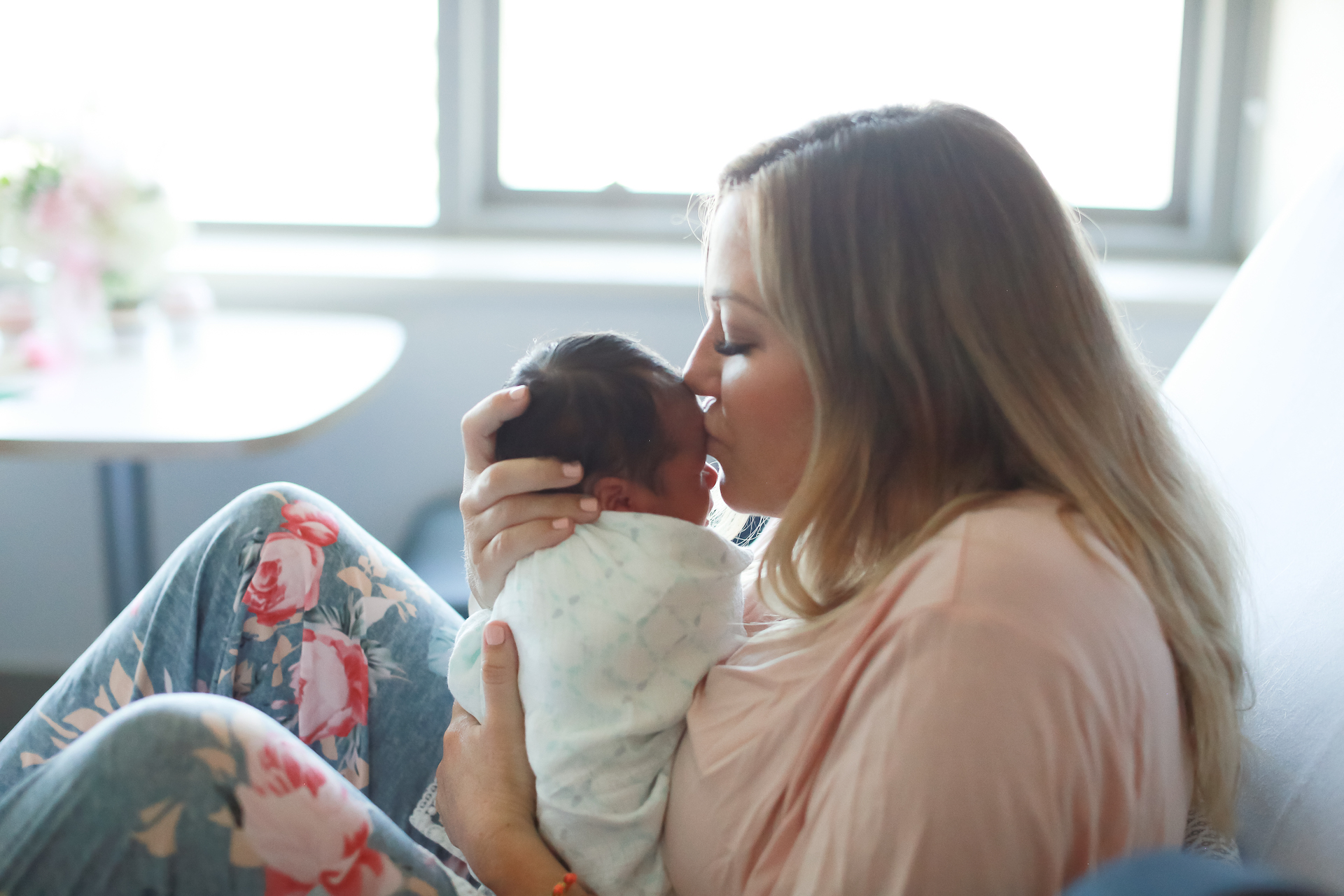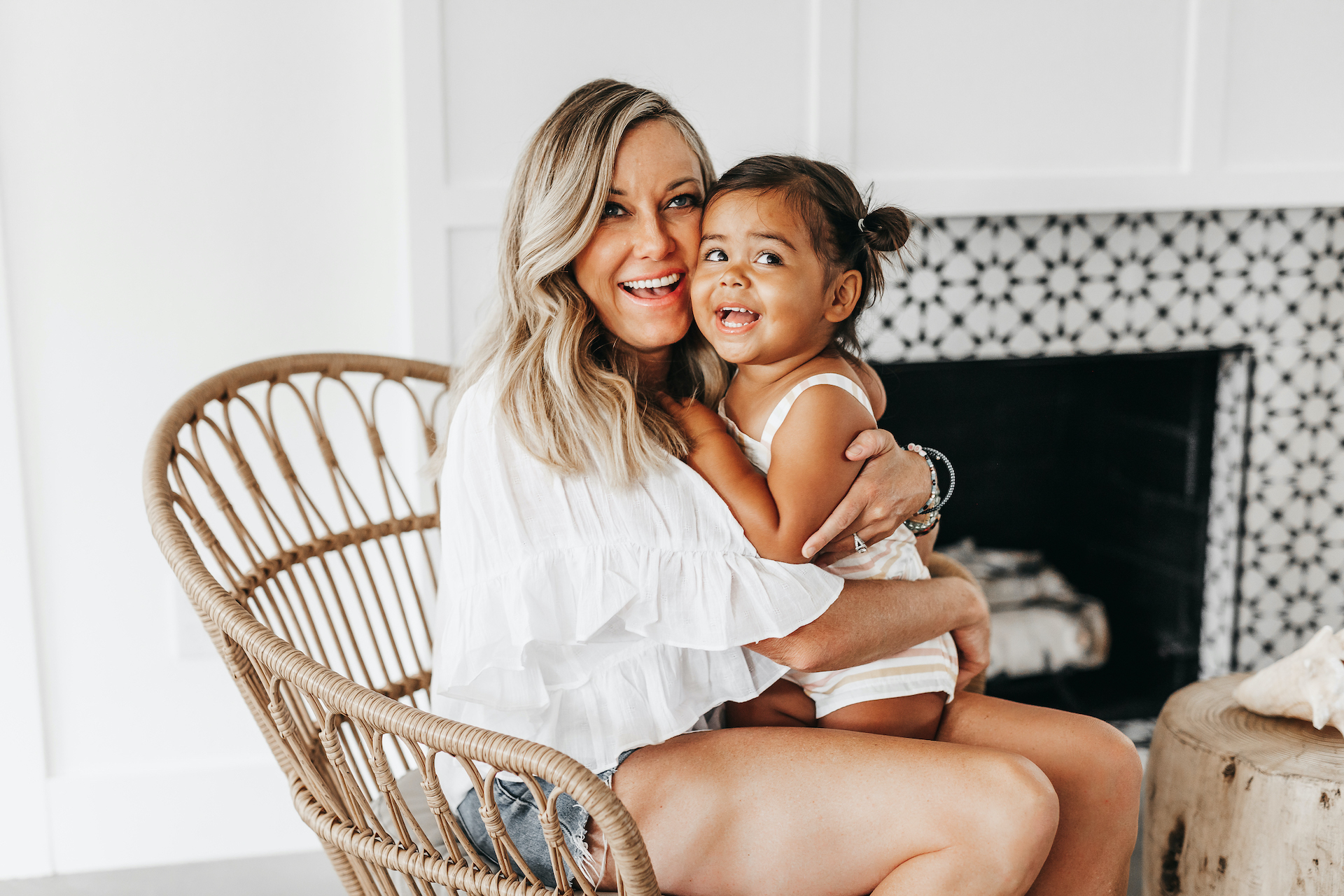We Pass On So Much More to Our Children Than Genetics
I am a strong woman because a strong woman raised me.
Strong women aren’t just born that way, they are taught by watching the strong women in their lives work hard and stand up for themselves and others. I attribute a large portion of my strength to my mother’s leadership, independence, wisdom, vulnerability, and love. The other portion comes from my experiences and challenges in life.
I may not get to pass on my mother’s genes to my daughter, but I sure as hell can pass on her teachings. I don’t get to pass on her blue eyes, but I get to pass on her confidence and fierce love for her family.
I also got to pass on some strong names from my family. My daughter’s first name comes from her badass Great Grandmother who was still mowing her lawn in her 80s. Her middle name comes from her fiery great-aunt. We get so hung up on genes, but there is so much more we get to pass on.
As parents, we influence and cultivate who our children become.
I may not influence what my daughter looks like physically, but I sure as hell play a major part in who she is as a person. And that’s what matters most to me.
We Don't Have Children to Make "Mini-Me's" of Ourselves
We don’t have children to make “mini-me’s” out of ourselves, that’s not the point of reproducing or a reason to grow a family. We have children to be uniquely themselves. To be individuals. My daughter has her own thoughts, her own soul, her own personality. I am her teacher but she learns and grows in her own unique way.
The truth is, I strive to be more like her, not to make her more like me. I am in complete awe of her uniqueness. She inspires me daily to be more than I am — to be my own version of me, not like anyone else.
Finding Peace With Donor Eggs: Tips From My Experience
My perspective and belief system are much different now than they were when I was first considering donor eggs. All because of my beautiful three-year-old daughter.
She has taught me what a mother-child bond is built on - and I can tell you it is not DNA.
Here are some things that helped me learn how to cope with using donor eggs and move forward to building the family of my dreams with the help of donor eggs.
1. Letting Go of Your Genetic Child
• Give him/her a name and imagine what he/she would look like.
• Plan a ceremony for you and your partner, like planting a flower or sending a lantern into the sky.
• Write a letter to your genetic child, address them by name, and tell them that you love them, but it’s time to let them go now.
2. Lean on a Supportive Community
• Start telling your story to safe people and get comfortable with talking about it. Telling your story allows you to reflect your reality by seeing the emotion in the people you tell.
• I highly recommend joining a donor conception support group. Finding other parents who have walked this life can help you visualize the reality of having a donor-conceived child. “If we see it, we can be it.”
Telling your story allows you to reflect your reality by seeing the emotion in the people you tell.
3. Reimagine the Child Meant for You
• Give your non-genetic child a name and imagine what this child would look like.
• Write a letter telling them how much you love them, that you are welcoming them into your heart, and how excited you are to meet them and be their mommy or daddy.
• Make a list of all the amazing non-genetic traits you will get to pass on.
• Buy at least one children's book about donor conception and read it out loud; start thinking about how this relationship would feel when you tell your child their love story.
• TRUST that the universe is working on a master plan for you and that the child meant for you is going to be even better than what you imagined.
The child meant for you is going to be even better than what you imagined.
About the Author:
 Victoria Nino is a two-time mother via donor eggs who spent many years chasing the dream of motherhood that she's now living. As a guest author on the Donor Nexus blog, Victoria shares her wealth of knowledge and personal experiences to help our intended parents as they navigate their unique journeys. We are so grateful to work with Victoria on her mission of normalizing donor conception! To connect personally with Victoria, follow her on Instagram or join one of her virtual online support groups.
Victoria Nino is a two-time mother via donor eggs who spent many years chasing the dream of motherhood that she's now living. As a guest author on the Donor Nexus blog, Victoria shares her wealth of knowledge and personal experiences to help our intended parents as they navigate their unique journeys. We are so grateful to work with Victoria on her mission of normalizing donor conception! To connect personally with Victoria, follow her on Instagram or join one of her virtual online support groups.
About Donor Nexus:

Donor Nexus is a boutique egg bank and fresh egg donor agency in Newport Beach, California, working with intended parents and egg donors worldwide. We offer a personalized experience delivered through our proven donor egg and donor embryo programs. Since our establishment in 2012, over 1,200 babies have been born through our programs. Looking for an egg donor? Register for free access to our online donor database to explore your options with us. We look forward to assisting you in any way we can!
Want to hear more from Victoria? View more from her series on donor conception:
- 7 Ways I Learned to Cope With Infertility Grief
- Should I Use Donor Eggs? Will I Have Any Regrets?
- Will My Donor Egg Baby Look Like Me? My Personal Experience
- Bonding and Attachment: A Letter to Intended Parents
Find Additional Resources in the Donor Nexus Blog:
• Fresh vs. Frozen Donor Eggs: 5 Important Factors to Compare
• Epigenetics: Donor Egg Mother's Influence Starts in the Womb
• Explaining Donor Conception to Your Child: Dos and Don'ts
• Navigating Donor Conception: Understanding Privacy vs. Secrecy
This blog was originally published on September 7th, 2021.





